Community-based circular food systems in Pakistan - A path to sustainable food security
Published in Earth & Environment, Sustainability, and Plant Science
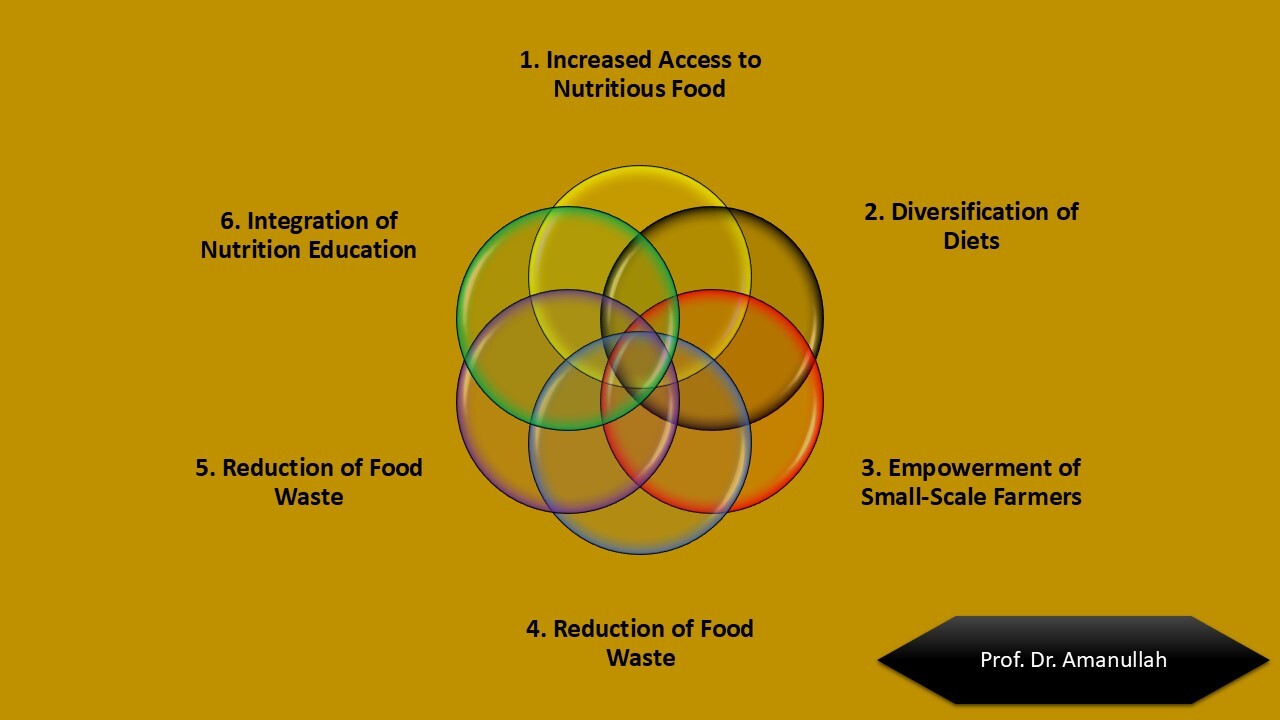
Pakistan, a nation grappling with the imperative of food security amidst environmental degradation and resource limitations, stands at a pivotal juncture in its agricultural trajectory. The transition to community-based circular food systems (CBCFS) emerges as a promising avenue to address these pressing challenges sustainably. Circular food systems, characterized by their emphasis on waste reduction, efficient resource utilization, and localized production-consumption cycles, offer a holistic approach to food production and distribution. In the unique context of Pakistan—where agriculture serves as a cornerstone of the economy and communities are deeply interconnected—the adoption of such systems holds significant potential. By integrating circular principles into the fabric of its agricultural landscape, Pakistan can not only enhance its food security but also promote environmental sustainability and bolster community resilience.
The agricultural sector in Pakistan plays a critical role in supporting livelihoods and contributing significantly to the nation’s GDP. Yet it faces multifaceted challenges, including water scarcity, soil degradation, post-harvest losses, and fluctuating market conditions. Rapid urbanization and a growing population further strain the country’s ability to sustainably meet food demands. In this context, CBCFS offers a viable model to transform current agricultural and food systems. These systems promote efficient use of natural resources—such as water, nutrients, and biomass—while minimizing waste through composting, biogas generation, and nutrient recycling. Additionally, by localizing food systems and enhancing community participation, CBCFS can reduce reliance on long supply chains and imported inputs, thus strengthening food system resilience and reducing vulnerabilities to global shocks.
The transition to CBCFS also aligns with Pakistan’s broader sustainability goals, including climate resilience and social equity. Climate change poses a significant threat to agricultural productivity in the region, with increasing occurrences of extreme weather events, heatwaves, floods, and shifting precipitation patterns. CBCFS, with their emphasis on ecological farming methods, diversified cropping systems, and sustainable land and water management practices, offer tools to build adaptive capacity and climate resilience at the local level. Beyond environmental benefits, these systems promote social inclusivity by empowering local communities—particularly small-scale farmers, women, and marginalized groups—through participatory decision-making, cooperative farming models, and improved market access. By nurturing a sense of ownership and agency within communities, CBCFS foster long-term commitment to sustainable agricultural practices and equitable food systems.
In summary, the adoption of community-based circular food systems in Pakistan represents a transformative opportunity to address the interlinked challenges of food insecurity, environmental degradation, and social inequality. It offers a pragmatic and inclusive path toward a sustainable, resilient, and equitable food future.
Discussion
Community-based circular food systems offer a multi-dimensional strategy for addressing food insecurity, malnutrition, and ecological degradation in Pakistan. These systems are rooted in the principles of circular economy—where resources are reused, recycled, and regenerated—and are tailored to local needs through community-driven approaches. CBCFS can significantly contribute to achieving sustainable food security in Pakistan through the following key avenues:
1. Enhancing Nutritional Outcomes
A major advantage of CBCFS is their potential to improve access to nutritious food, especially in low-income and rural communities. In Pakistan, malnutrition remains a widespread issue, with stunting, wasting, and micronutrient deficiencies affecting a large segment of the population. CBCFS promote the cultivation of diverse crops—such as vegetables, legumes, fruits, and biofortified staples—on community farms, home gardens, and school plots. By focusing on nutritional diversity and seasonality, these systems enhance dietary quality and reduce reliance on energy-dense, nutrient-poor foods. Community kitchens and food-sharing networks, powered by local produce, can further strengthen access to balanced meals while minimizing food waste.
2. Reducing Agricultural Waste and Promoting Resource Efficiency
Traditional agricultural practices in Pakistan often generate considerable waste, including crop residues, animal waste, and food losses along the supply chain. CBCFS help close the nutrient loop by transforming organic waste into compost and biogas, which can be reused on farms to enrich soil fertility and reduce dependency on synthetic fertilizers. Rainwater harvesting, solar-powered irrigation systems, and low-cost greenhouses can be integrated to optimize water and energy use. These strategies lower production costs for farmers while enhancing sustainability and environmental health.
3. Empowering Smallholders and Marginalized Communities
Small-scale farmers and marginalized groups—including women and landless laborers—are frequently excluded from formal agricultural markets and policymaking processes in Pakistan. CBCFS provide an inclusive framework that values local knowledge, fosters collaboration, and enables equitable participation in food production and governance. Through cooperative farming models, community-supported agriculture (CSA), and village-level food cooperatives, CBCFS can empower these groups economically and socially. Capacity-building initiatives—such as training in agroecology, composting, seed saving, and business management—can further enhance self-reliance and livelihoods.
4. Strengthening Local Food Economies and Market Access
Localizing food systems by shortening supply chains and encouraging farm-to-fork models can improve market access for small producers while ensuring fresher and more affordable food for consumers. Farmers’ markets, local procurement schemes (such as school meals and hospital food programs), and digital platforms for direct sales can play a vital role in connecting producers and consumers. These mechanisms not only strengthen local economies but also foster transparency and trust in the food system. Additionally, decentralized food distribution reduces greenhouse gas emissions associated with long-distance transportation.
5. Building Climate Resilience and Ecosystem Health
Climate variability poses a major threat to food production in Pakistan, particularly for rain-fed and arid regions. CBCFS adopt climate-smart practices—such as intercropping, agroforestry, conservation agriculture, and integrated pest management—that enhance ecosystem services and mitigate climate impacts. These practices improve soil health, increase biodiversity, and stabilize yields, making farming systems more resilient to droughts, floods, and other climate-induced disruptions. Moreover, circular systems help sequester carbon in soils and biomass, contributing to climate change mitigation.
6. Cultivating Awareness and Behavioural Change
Finally, CBCFS serve as platforms for community education and awareness on nutrition, sustainability, and food justice. By involving schools, youth clubs, and local organizations in farming and food initiatives, these systems promote a culture of sustainability and responsible consumption. Public health campaigns and nutrition education can complement agricultural efforts to foster healthier lifestyles and dietary habits across generations.
Conclusion
The transition to community-based circular food systems in Pakistan offers a promising pathway to tackle the intertwined challenges of food insecurity, environmental degradation, and social inequality. Rooted in principles of sustainability, inclusivity, and resilience, these systems hold the potential to transform the country’s food landscape from a linear, resource-intensive model to a regenerative, community-driven framework. By enhancing nutritional outcomes, reducing waste, empowering marginalized communities, and strengthening local economies, CBCFS provide a comprehensive solution that aligns with both national development goals and global sustainability targets. In an era defined by climate uncertainty and resource scarcity, circular food systems emerge not only as a necessity but as a strategic opportunity for Pakistan to build a healthier, more resilient, and equitable food future.
Follow the Topic
What are SDG Topics?
An introduction to Sustainable Development Goals (SDGs) Topics and their role in highlighting sustainable development research.
Continue reading announcement
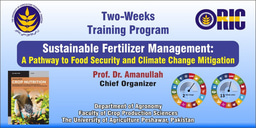
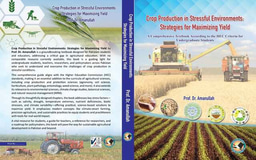
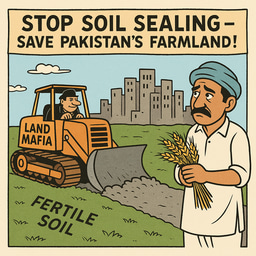
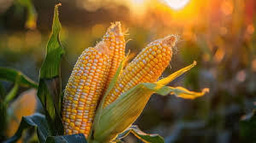
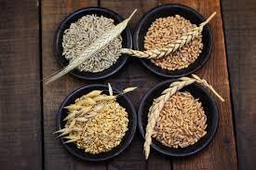
Please sign in or register for FREE
If you are a registered user on Research Communities by Springer Nature, please sign in
Amanullah, & Khan, U. (2025). Community-based circular food systems in Pakistan: A path to sustainable food security. Journal of Agriculture, Food Systems, and Community Development, 14(2), 1–11. https://doi.org/10.5304/jafscd.2025.142.029